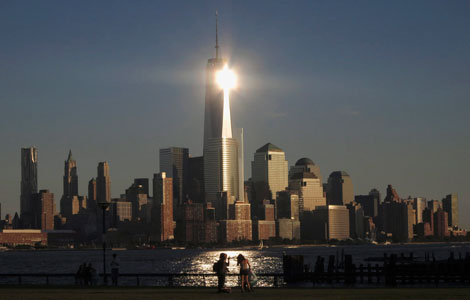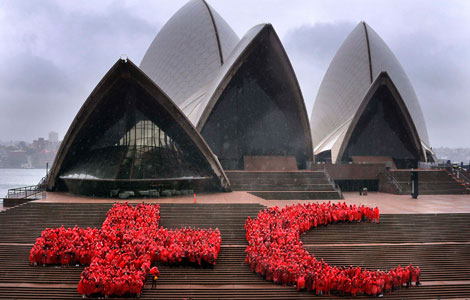

WARSAW - The annual UN global climate talks started Monday amid hopes progress will be made toward the signing of a new climate deal by 2015, however no major breakthrough is expected.
Thousands of representatives from nearly 200 nations gathered in the national stadium for the two-week negotiations, formally known as the 19th session of the Conference of the Parties to the United Nations Framework Convention on Climate Change (UNFCCC), or COP19.
Polish Environment Minister Marcin Korolec, who was elected COP19 president at the opening session, pledged the utmost effort would be made to reach global consensus, citing transparency and an inclusive process as his top priorities.
"One country or one group cannot make a difference ... but everyone can offer an ingredient of the medicine," Korolec said, calling for collective action from all parties.
UNFCCC Executive Secretary Christiana Figueres warned the next generation would face a "monumental uphill struggle" against climate change.
"We must win the Warsaw opportunity," Figueres said.
"The world is showing action, but it is time to go (the) extra miles," she said, urging faster and stronger global moves for a sustainable future.
NEW GLOBAL CLIMATE TREATY
It was agreed at the 2011 Durban climate conference to establish a new global climate treaty setting emission targets for all UNFCCC parties. It will replace the Kyoto Protocol, the first legally-binding document for developed nations whose second commitment period will end in 2020.
The outline of the new treaty will be discussed at the Warsaw conference, with a view to it being signed in 2015 in Paris and coming into effect in 2020. UN Secretary General Ban Ki-moon will organize a summit next September to ensure the 2015 deadline is met.
Both developed and developing countries have pledged to curb carbon emissions, but there are deep divisions over burden sharing. According to the UNFCCC's fundamental principle of "common but differentiated responsibilities," developed countries are mainly responsible for the current high levels of greenhouse gas emissions generated since the industrial era.
Global average temperatures have risen by 0.8 degrees Celsius since the industrial era, and most global warming is man-made, according to the United Nations.
Mainstream scientists believe global warming poses a mounting threat to health, economic growth, crops and water supplies. Typhoon Haiyan, which is feared to have killed up to 10,000 in the Philippines last week, has been frequently mentioned at the Warsaw talks as a "painful awakening" of the risks of extreme weather.
According to the latest report from the United Nations Environment Programme (UNEP), greenhouse gas emissions need to be drastically reduced by 2020 in order to meet the target of limiting global warming to 2 degrees Celsius compared to pre-industrialization levels.







